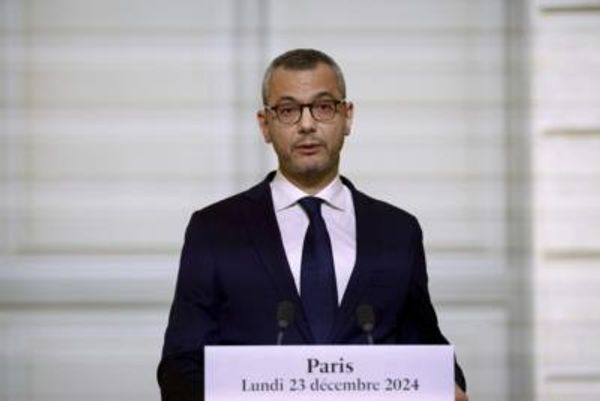
Kyiv (Ukraine) (AFP) - A blistering wave of Russian strikes targeting Ukraine's energy infrastructure killed 11 people on Thursday, a day after Germany and the United States pledged heavy tanks for Kyiv.
The latest wave of attacks came as the Kremlin said Moscow perceived the tank deliveries "as direct involvement in the conflict".France insisted that neither Paris nor its allies were fighting a war against Russia.
"This should have happened sooner and in bigger quantities," a Ukrainian doctor called Liza told AFP near the eastern frontline city of Bakhmut, welcoming the long-awaited promise of heavy tanks.
As a result of Russia's latest missile strikes, 11 people were killed and 11 others were wounded on Thursday, Ukraine's emergency services said.
Earlier in the day officials said that a 55-year-old man was killed in Kyiv by fragments of a missile that was shot down by Ukrainian air defence systems.
The Ukrainian army said its forces destroyed 47 out of the 55 missiles launched by Russia.
Since October, Russia has launched regular strikes against energy infrastructure across Ukraine, with temperatures currently near zero degrees Celsius (32 degrees Fahrenheit).
Energy Minister German Galushchenko accused Russia of seeking to "create a systemic failure in Ukraine's energy system."
Galushchenko said the situation was particularly difficult in the regions of Odessa and Vinnytsia.
Emergency shutdowns
The situation in Kyiv stabilised by the afternoon, but in the southern region of Odessa on the Black Sea "emergency power outages will continue," energy provider DTEK said.
The attacks delayed the visit of French Foreign Minister Catherine Colonna, who arrived in Odessa to discuss aid with Ukraine's top diplomat Dmytro Kuleba.
The Ukrainian air force said its units also shot down all 24 Iranian-made drones launched by Russian forces from near southern Ukraine.
By announcing heavy tank deliveries, the United States and Germany on Wednesday swept aside long-standing misgivings and signalled a new surge of Western support for a counteroffensive against the Russian invasion.
The United States said it will provide 31 Abrams tanks to Ukraine while Chancellor Olaf Scholz gave the green light to Germany sending 14 Leopard 2 tanks -- a decision that opens the floodgates to several other European countries armed with Leopards to send their own contributions.
Although Western countries have already sent Ukraine everything from artillery to Patriot anti-missile defence systems, tanks were long considered a step too far, risking a widening backlash from Russia.
But with Ukraine gearing up for a counteroffensive to push back increasingly entrenched Russians in the east and south, the allies are now scrambling to send the powerful weapon.
German Defence Minister Boris Pistorius said Thursday that Leopard tanks pledged by Berlin would arrive in "late March, early April."
Training of Ukrainian troops on German Marder infantry fighting vehicles will start in the next few days, he added, and "a little later" for the Ukrainian soldiers who will be trained on the Leopard.
'Offensive operation'
Kremlin spokesman Dmitry Peskov said the tank deliveries represented "direct involvement in the conflict."
But Paris insisted that neither France nor its allies are fighting a war against Russia.
"We are not at war with Russia and none of our partners are," said foreign ministry spokeswoman Anne-Claire Legendre.
"The delivery of military equipment...does not constitute co-belligerence."
After a series of battlefield setbacks, Russia has claimed gains on the eastern front, where Ukraine conceded that its troops had pulled out of the town of Soledar in the Donetsk region.
Russian forces and units with the Wagner mercenary group claimed two weeks ago they had captured the small salt-mining town.
On Wednesday, Ukrainian Deputy Defence Minister Ganna Malyar said Moscow was also intensifying pressure along the eastern front, in the fight for nearby Bakhmut.
The US-based Institute for the Study of War said Russia was engaging in "spoiling attacks across most of the frontline in Ukraine in order to disperse and distract Ukrainian forces."
Those measures, it said, were in order to "set conditions to launch a decisive offensive operation" in the eastern Lugansk region.







